Topic Clusters: How to Create Content that Doesn’t Suck
My favorite method, by far, for generating high quality content is through Subject Matter Expert (SME) interviews.
I know what you’re thinking: I’ve seen plenty of people do that and still create crap content. And you’re right.
The magic is truly in how the interview process is conducted. If you do a surface-level interview, all you’ll ever get is surface-level content.
So, without further ado, find all my best tips (gained from years of experience running interviews) for running killer SME interviews below.
Start by understanding the business
This should go without saying, but just in case: know something about the business ahead of time. Don’t go into an interview cold, with no knowledge of what the business does or why.
Make sure you know the primary business messaging, so you can weave it into your questions and the final articles that are written.
Do research before-hand
Please, please don’t waste your SME’s time. Typically your SMEs are going to be very high-level organizational leaders. You know, the kind of people who are BUSY RUNNING THE BUSINESS.
You need to look at every moment you get with them as PURE GOLD. And use it accordingly.
I make sure I have my full topic cluster strategy pre-planned (with room for flexibility in content titles and direction based on learnings from the interview). I’ve done all the keyword research, and I know how people are phrasing searches related to the topic, and I know what questions they are asking about the topic.
Be efficient
Interview for the pillar and sub-topic blogs at the same time. Having a comprehensive interview on an entire topic area and getting information to fuel an entire topic cluster’s worth of content is very easy to do in an hour-long interview (if you ask the right questions).
What if you determine that you need to interview multiple SMEs? There are two cases within this umbrella:
A very specific article or two in your cluster requires a separate SME: Just schedule a separate 15-30 minute interview with that specialized SME for those very specific titles.
The entire topic is something two SMEs know very well: Invite them both to the same interview. Listening to the conversations that happen between two SMEs as they bounce ideas off each other can be incredibly educational. I wouldn’t recommend doing this with any more than 2 SMEs, otherwise things will go off the rails fast.
Tell your interviewee about the process
Particularly if this is your first interview with the SME, give them an overview of the process. And remind them that this process is meant to TAKE AS LITTLE OF THEIR TIME AS POSSIBLE.
Please make sure your process IS designed to just that. By the way, this is my process, if it helps:
Keyword research
SME interview
Write content
SME review (I always remind my SME that I’m asking them to quickly review for technical correctness. I only ask them to think about voice and tone if the article is actually coming out under their byline.)
Keyword optimization
Publication
Place the interviewee in the right frame of mind
It is not your interviewee’s job to enter knowing exactly how they should be answering your questions. It is your job to make it clear in your questions so that they can effortlessly provide answers that fit the audience who will be reading the content.
Quite simply, constantly remind them who they are talking to. (And consider this a polite reminder to make sure YOU know who you are talking to before starting the interview.)
You can easily do this with questions like:
“If I was a company like X, how would I be approaching this?”
“If companies are out there exploring options, what kind of different choices do they have?”
“What is [Role]’s typical level of knowledge?”
“What would you imagine is [Role]’s greatest struggle with regard to X?”
Make sure you’re getting actionable advice
Make sure to push the interviewee to provide actionable advice that doesn’t involve your company. You don’t want your content to end up as a thinly veiled sales pitch, and depending on your SME, their answers might create only that. Sales leaders, I’m looking at you (lovingly of course).
My favorite question for this situation: “What else would you recommend someone do to solve this problem, aside from buying X from us?”
Relate it back to the business
While we don’t want a thinly veiled sales pitch, we do want to know how to relate back to what the business can do to help the reader solve this problem.
Most articles end with a call to action which just closes with a quick breakdown of how the brand can help the reader solve the problem. So make sure you know (and explicitly ask) how the business provides a solution for the pain point.
There are no stupid questions
Make sure you don’t stop yourself from asking a question because you’re afraid it will make you look stupid. You’ll never be able to confidently write (or review copy from an outsourced writer) if you don’t know the subject well enough yourself.
Hear an acronym? Make sure you ask what it is.
Feel stupid asking a question? Say it. Example: “You may think this is kind of a silly question, but…” I promise it will be worth it.
Confirm your understanding
At various points during the interview, check back in to make sure you are understanding what the interviewee has said.
“So, just to make sure I’m understanding correctly, it is like this…”
This will allow them to correct anything you have assumed, and often pushes them to dig deeper to explain nuances they might not have conveyed with the initial answer.
A great trick for this is using metaphors. “Oh, so it is like the difference between a car and a spaceship. A spaceship may go faster than a car, but if you have no idea how to drive it, all you’ll do is crash. And in that instance, the car would have been the better choice for speed.”
Be hungry. Scratch that. Be insatiable.
THIS IS THE SINGLE MOST IMPORTANT PIECE OF ADVICE I CAN OFFER.
Your job is to go into the interview somewhat prepped with at least what you can glean from Google searches. During the interview your #1 GOAL is to learn as much as you can, so much in fact, that you can educate others on the topic.
Ask whatever questions you need to do that. Ask for access to materials they might have that they use internally.
You should walk out of that interview:
Excited: You just got to learn a bunch of cool shit that this person has been working on for most of their career.
Educated: Well versed enough to start writing on the subject. I tend to wrap my head around subjects as I write and continue to learn them better as I execute content even after the interview.
Ready to teach: If you don’t feel like you can turn around and explain the topic, at least somewhat eloquently, to someone else at the end of the interview, you’ve failed.
Even more tips
I also highly recommend watching this in-depth video from Joy Youell at Hire a Writer which gives even more tips that will make your interviews incredible.
Want the Playbooks?
Want detailed playbooks on how to expertly build a topic cluster, from strategy to completion? Looking for more training on how to execute topic clusters successfully (because, let’s be honest, you probably already know you need to do them).
Check out my online course, which compiles nearly 10 years of experience in content strategy and detailed instructions on how to execute a topic cluster strategy to perfection.

